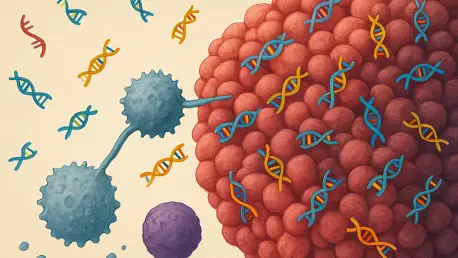
The intricate landscape of the tumor microenvironment is increasingly recognized not as a simple collection of malignant cells, but as a complex ecosystem where cancer’s fate is dictated by a dynamic interplay with the body's own immune system. The targeting of specific immune cell subsets

A significant European collaborative initiative has made remarkable strides in understanding the intricate dance between the body's immune system and the onset of cancer, potentially unlocking a new era of predictive diagnostics. By focusing on the often-overlooked first-line defenders known as

A baffling contradiction has long stood at the heart of understanding how one of the most aggressive forms of breast cancer spreads throughout the body, but new research has finally unraveled this mystery, revealing a unique survival strategy that cancer cells use to become metastatic. For years,

Today we're joined by Ivan Kairatov, a biopharma expert with extensive experience in research and development. We'll be exploring the outcomes of a groundbreaking clinical trial that has identified a surprising new use for an old drug, offering significant relief to men undergoing hormone therapy

The promise of harnessing the body's own immune system to fight cancer has been one of the most significant medical breakthroughs of the century, yet a persistent paradox has puzzled clinicians and researchers alike. For years, the prevailing wisdom held that tumors with more genetic mutations were

The most significant advancements in public health often arise not from a complex new drug but from a simple, elegant solution that removes a long-standing barrier to care. A groundbreaking study now presents such an innovation: a highly effective at-home test for human papillomavirus (HPV) that